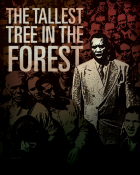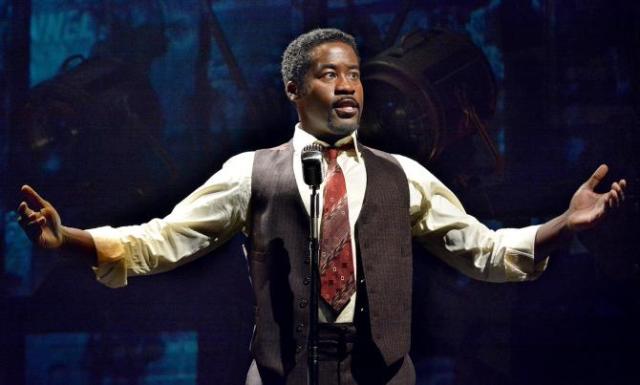

Los Angeles is enjoying a mini-festival of one-man plays about Paul Robeson. The Nate Holden Performing Arts Center has revived the late Phillip Hayes Dean’s Paul Robeson,which was first performed by James Earl Jones in 1977. Now acted by Keith David (currently featured in Fox TV’s “Enlisted”), this worthy production will run through April 27, 2014.
At the Mark Taper Forum, Daniel Beaty just opened in the world premiere of The Tallest Tree in the Forest. Beaty wrote the play himself, drawing on multiple books and films about Robeson, a man he counts as one of his greatest heroes. “It was very important to me that the play not be hero worship,” he said in a recent L.A. Times interview, which is undoubtedly why he did not shy away from dealing with Robeson’s marital infidelities and with his tempestuous political life.
Everything about Robeson was outsized, even mythic. The imposing son of an ex-slave, he was one of the first blacks admitted to Rutgers University, where he became an All-American football player and a brilliant scholar. Having earned a law degree, he went to work in a prestigious Wall Street firm, only to land a role in the Broadway premiere of Show Boat, in which he sang the song that made him famous, “Ol’ Man River.” Starring roles in films, plays and concerts, both in the USA and England, followed; by the late 1920s Robeson was a much-loved and highly-successful performer, a headliner.
At the same time, Robeson was a civil-rights activist, one who never stopped denouncing racism and segregation in the USA. He also took up the cudgels of the class war, coming down squarely on the side of workers and poor folk, speaking up for them at rallies and meetings. And in a 1927 trip to the USSR, he became a convert to communism, having found democracy and equality there, in a society that he truly felt was color-blind.
Robeson’s leftist views soon got him in trouble back home: J. Edgar Hoover, for one, put him on an FBI hit list, which meant that Robeson was followed and harassed for the rest of his life by secret agents and stool pigeons. In the McCarthy era, Robeson was also vilified by Congress and the White House. His passport was taken away, and he was blacklisted in Hollywood and even on Broadway. But even when he was being vilified, and when his career was in a state of collapse, Robeson refused to apologize for his beliefs. He also refused to criticize the Soviet Union, even though he had become aware of its terrible flaws, its persecution of artists, rebels and Jews. “I won’t speak out against the USSR when it is under threat of atomic war,” he confided to his wife Essie (a powerful and remarkable woman in her own right).
All of these dramatic events are explored and dramatized by Beaty, who not only impersonates Robeson and sings thirteen of his best-known songs (backed by three musicians) but takes on the personae of some three dozen characters – men, women, children – during the course of the two-act play. Beaty’s tour-de-force performance is a thing of astonishing beauty and skill, aided no doubt by Moises Kaufman’s deft direction, David Lander’s dazzling lighting changes, and John Narun’s dramatic video projections.
